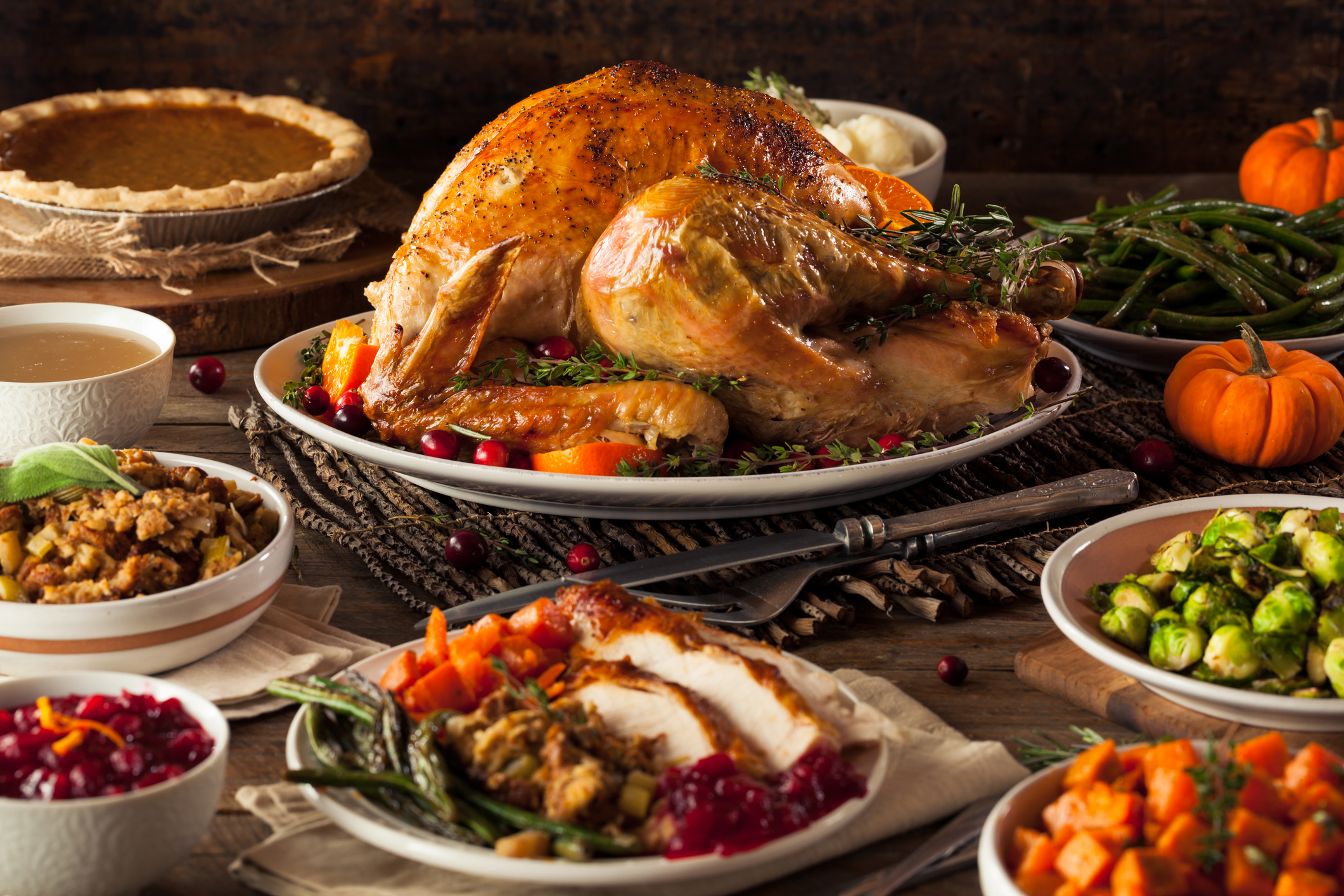No one wants to spend their holiday recovering from food poison. Proper food safety practices can make a huge difference in preventing illness and keeping your holiday festive and fun!

Avoiding these holiday cooking mistakes can help ensure that holiday meal is safe and enjoyable for everyone:
- Undercooking the Turkey
Undercooked poultry can harbor harmful bacteria like Salmonella. Always check the internal temperature with a thermometer to ensure it reaches proper temp. - Not Thawing Meat Properly
Thawing meat on the counter can cause bacteria to multiply. Always thaw in the fridge or in cold water (changing the water every 30 minutes). - Cross-Contaminating Raw Meat
Using the same cutting board for raw meat and vegetables without sanitizing it can spread harmful bacteria like E. coli. Use separate boards for raw meat and other ingredients. - Not Washing Hands After Handling Raw Meat
Touching raw meat without washing your hands can transfer bacteria to other foods and surfaces, leading to foodborne illnesses. - Not Storing Leftovers Promptly
Leaving leftovers at room temperature for too long (over 2 hours) can lead to bacterial growth. Store them in the fridge within two hours to avoid food poisoning. - Using Expired Ingredients
Baking or cooking with expired ingredients, especially dairy or eggs, can lead to foodborne illnesses. Check expiration dates carefully. - Not Cooking Stuffing to the Right Temperature
Stuffing cooked inside poultry can retain moisture and bacteria, which can lead to food poisoning. Make sure it reaches proper temp. - Using a Non-Calibrated Meat Thermometer
If your meat thermometer isn’t working correctly, you may end up eating undercooked meat, risking bacterial contamination. - Serving Undercooked Potatoes
Undercooked potatoes, particularly in dishes like mashed potatoes or gratins, can cause gastrointestinal issues due to harmful bacteria. - Not Washing Vegetables Properly
Raw vegetables can be contaminated with harmful bacteria or pesticides. Always wash them thoroughly to reduce the risk of illness. - Leaving Leftovers Out Overnight
Leaving food out overnight allows bacteria to multiply rapidly, particularly in creamy or dairy-based dishes. Always refrigerate leftovers promptly. - Not Heating Leftovers to a Safe Temperature
Reheating leftovers to only lukewarm temperatures can leave harmful bacteria alive. Reheat to a proper temp to kill germs. - Eating Raw Cookie Dough or Cake Batter
Raw eggs and unbaked flour can contain Salmonella and E. coli, respectively. Avoid tasting raw dough or batter, especially for children and the elderly. - Using a Dirty Dishcloth
Using a dishcloth that hasn’t been sanitized can spread bacteria to your food, especially when wiping counters and utensils after handling raw meats. - Not Storing Perishables Correctly
Perishables like dairy, meats, and eggs should be stored at the right temperature. Leaving them out too long can cause bacterial growth. - Using Non-Food-Grade Containers
Storing food in containers not designed for food storage (like old yogurt containers) could introduce toxins or cause contamination. - Not Properly Sealing Leftovers
Storing leftovers in loosely covered containers or improperly sealed plastic bags can expose them to bacteria or mold growth. - Serving Dishes That Have Been Sitting Too Long
Food that sits out too long at room temperature can grow dangerous bacteria. Always serve food as soon as it’s cooked or keep it warm safely. - Serving Underprepared Fish
Undercooked fish can harbor parasites or harmful bacteria, such as Vibrio, which causes food poisoning. - Not Cooking Eggs Thoroughly
Raw or undercooked eggs can lead to Salmonella infections. Make sure eggs are fully cooked, especially in dishes like eggnog, custards, or hollandaise sauce. - Leaving Raw Meat Near Ready-to-Eat Foods
If raw meat touches fruits, vegetables, or ready-to-eat foods without being properly separated, it can cause cross-contamination. - Using a Single Cutting Board for All Ingredients
Using the same cutting board for raw meats, fruits, and vegetables can spread harmful bacteria. Always use separate boards for different types of food. - Not Cleaning the Oven
A dirty oven can harbor old food residues that may cause contamination or even burn and produce harmful fumes during cooking. - Improperly Storing Canned Goods
Canned goods that are improperly stored or damaged can lead to botulism, a potentially fatal foodborne illness. Always inspect cans before use. - Not Following Food Safety Guidelines for Holiday Sweets
Holiday sweets like homemade candies and cakes may contain raw ingredients or unsafe temperatures that can result in bacterial growth if not handled properly.
